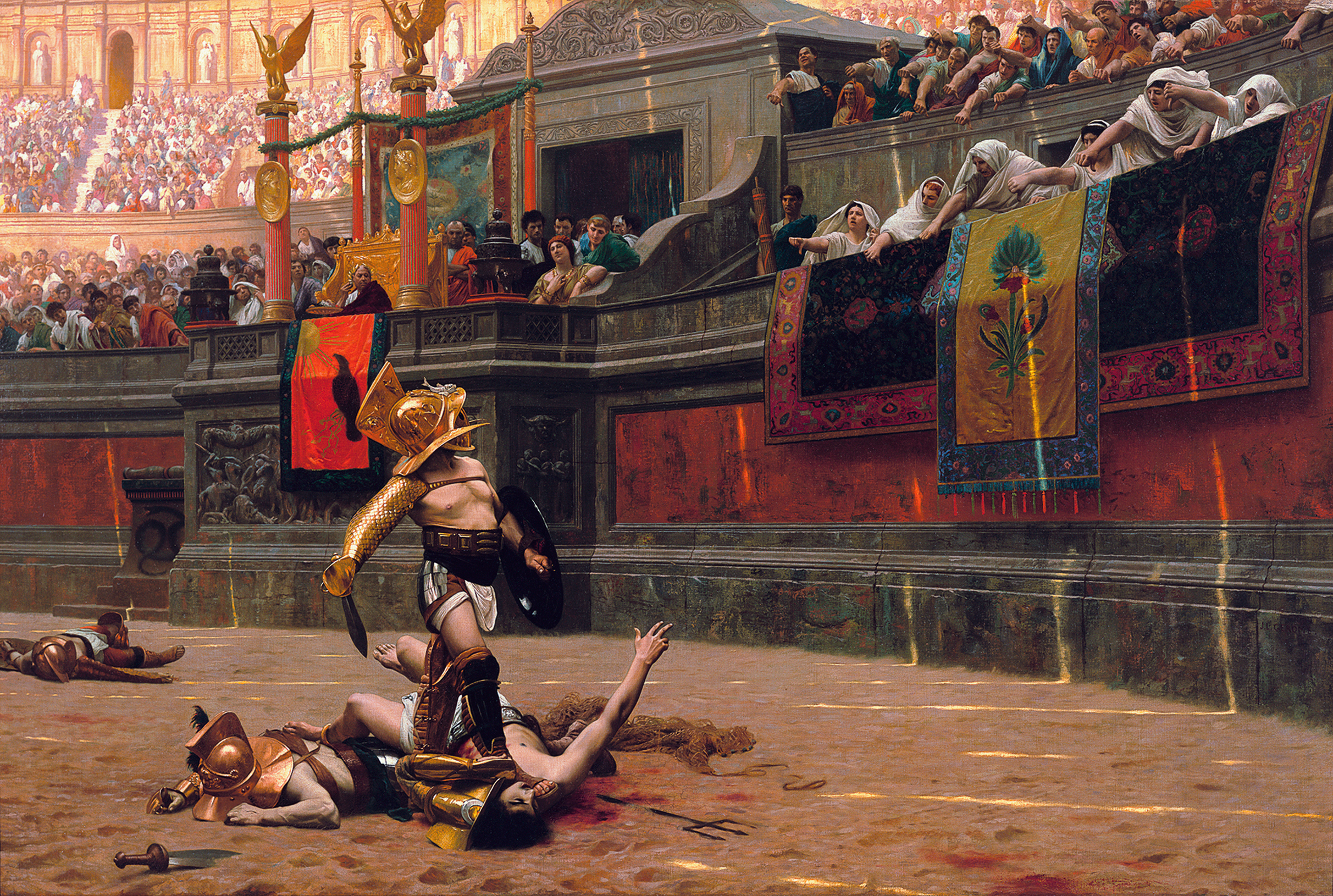
This episode currently has no reviews.
Submit Review- Podcast |
- The Partial Historians
- Publisher |
- The Partial Historians
- Media Type |
- audio
- Publication Date |
- Mar 14, 2014
- Episode Duration |
- 00:32:57
The Partial Historians return fantabulous listener with a fresh new episode! Spice up your ears with a foray into the historical and creative elements of Ridley Scott’s 2000 epic film Gladiator.
This film is touted as the return of the sword-and-sandal genre. And it’s definitely an interesting mélange of historical plausibility and blatant deviation from the primary source material.
A Gladiator Amongst Emperors
Set in the late second century CE, the film is firmly part of the Roman imperial period. Your presented with two emperors: Marcus Aurelius (Richard Harris) and Commodus (Joaquin Phoenix). Scott offers a binary opposition of imperial possibility: the philosopher king and the tyrant.
Central to the action is the imagined Maximus Decimus Meridius (Russell Crowe). Once a legate in favour with the Empire, he has been brought low by unfortunate circumstances and politics. The complications of his situation see him in favour with Aurelius, but not Commodus.
With epic scenes and emotional pivots, this film is worth considering in terms of its connections to the source material as well as its deviations.
We’re here with our deconstruction for you!
23-Gladiator-2018-Update.mp3">Gladiator
23-Gladiator-2018-Update.mp3">https://partialhistorians.com/wp-content/uploads/2014/03/Episode-23-Gladiator-2018-Update.mp3 Jean-Léon Gérôme 1872. Pollice Verso. This painting inspired part of Ridley Scott’s vision for the film.
Jean-Léon Gérôme 1872. Pollice Verso. This painting inspired part of Ridley Scott’s vision for the film.This episode currently has no reviews.
Submit ReviewThis episode could use a review! Have anything to say about it? Share your thoughts using the button below.
Submit Review